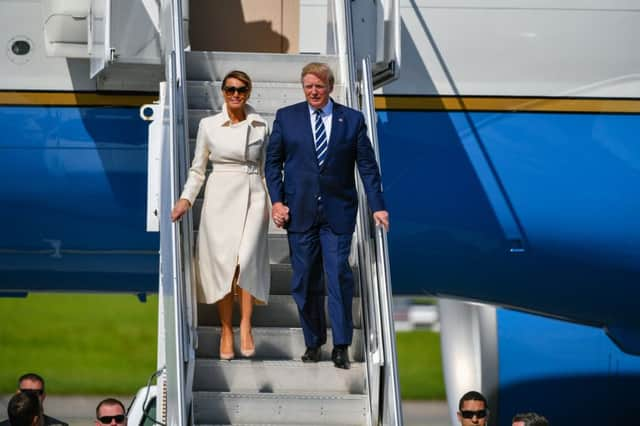Years of negotiations lie ahead


During the visit there was much talk of a trade deal between the US and the UK. Despite suggestions that this would be easy, this is not the case. Negotiations will take years rather than months. Other than arch-Brexiteers most people are realistic about prospects for a US/UK deal. Politically it may be important, but in economic terms it is less important than a deal with the EU-27, our nearest, biggest and best export market.
On a simple head count basis the EU has a bigger population and, so far as food and agriculture are concerned, operates as a higher value market. Trade deals after Brexit with countries around the world, including the US, are desirable – but a deal with the EU-27 is essential for the UK economy and agriculture in particular. That seems to have been accepted. The rhetoric of the Conservative party leadership campaign can be separated from the everyday work of government.
Advertisement
Advertisement
When it comes to agriculture it is hard not to see any trade deal with the US as potentially a very one-sided affair. The US is an agricultural superpower by any standards. It is an aggressive and successful exporter, with the scale needed to compete head on with the biggest and best in the world. Opportunities for the UK in the US are likely to be for specialist products – the jam, biscuits and tea described as potential export successes by Andrea Leadsom during her unmemorable time at Defra.
The problem the UK faces with all trade deals is scale. On the back of sterling driven down by Brexit uncertainty the economy is relatively strong, but it still has only a population of 60 million to offer. That does not make it a key target for most countries. It is a fact of life that in negotiations the EU-27 with closer to 500 million consumers – or indeed the US with 330 million – will always be higher on the global wish list when it comes to trade deals. That is why the EU has successfully locked up deals with countries like Japan, is about to do so with South America and is well down the road with Australia and New Zealand.
This is a game of numbers, and if you lack numbers you have to do the best you can with the cards you have. The UK can offer technical expertise, skills, a sound business reputation and excellence in food, drink and financial services. That makes it an attractive seller.
But as a buyer of goods scale is an issue. The government will have to be radical by offering better tariff access than other countries or the EU can offer. This is the difficult area in trade deals, as the EU has proved with the years it has taken to get close to a deal with the Mercosur countries in South America. There the stumbling block has been access for beef. Negotiations get bogged down in talks of equivalence of standards, and this will certainly be the case with the US over food.
Advertisement
Advertisement
There has been a lot of talk about whether the UK should accept American technology, such as chlorine-washed poultry, hormone treated beef or GM food. As someone who has a belief in science I have no concerns about eating any of these products, and no doubt have done so when visiting the US. However the general view is different and that applies in the UK as well as the EU. The worry however is not around the science that people deem unacceptable, but the fact that we are talking at all about a trade deal to open the UK to cheap food from the US. That would be damaging for agriculture and it would probably close us out of the EU-27 market under its fortress rules on food. Watch out for the point when the UK government says it will not accept this technology, but will accept US food produced without it.
For farmers that would be a case of winning a battle while losing the war – but consumers enjoying cheap food are unlikely to care.